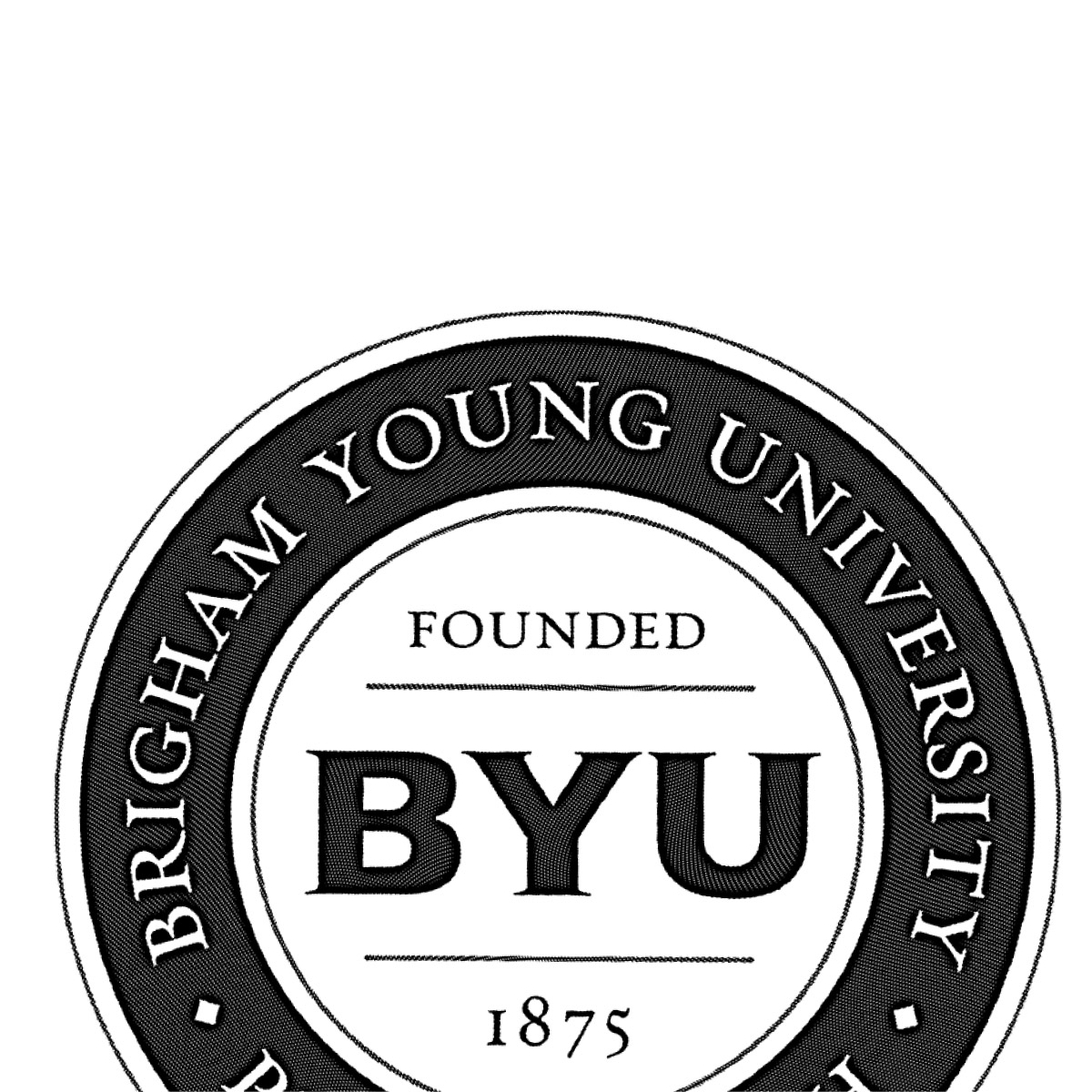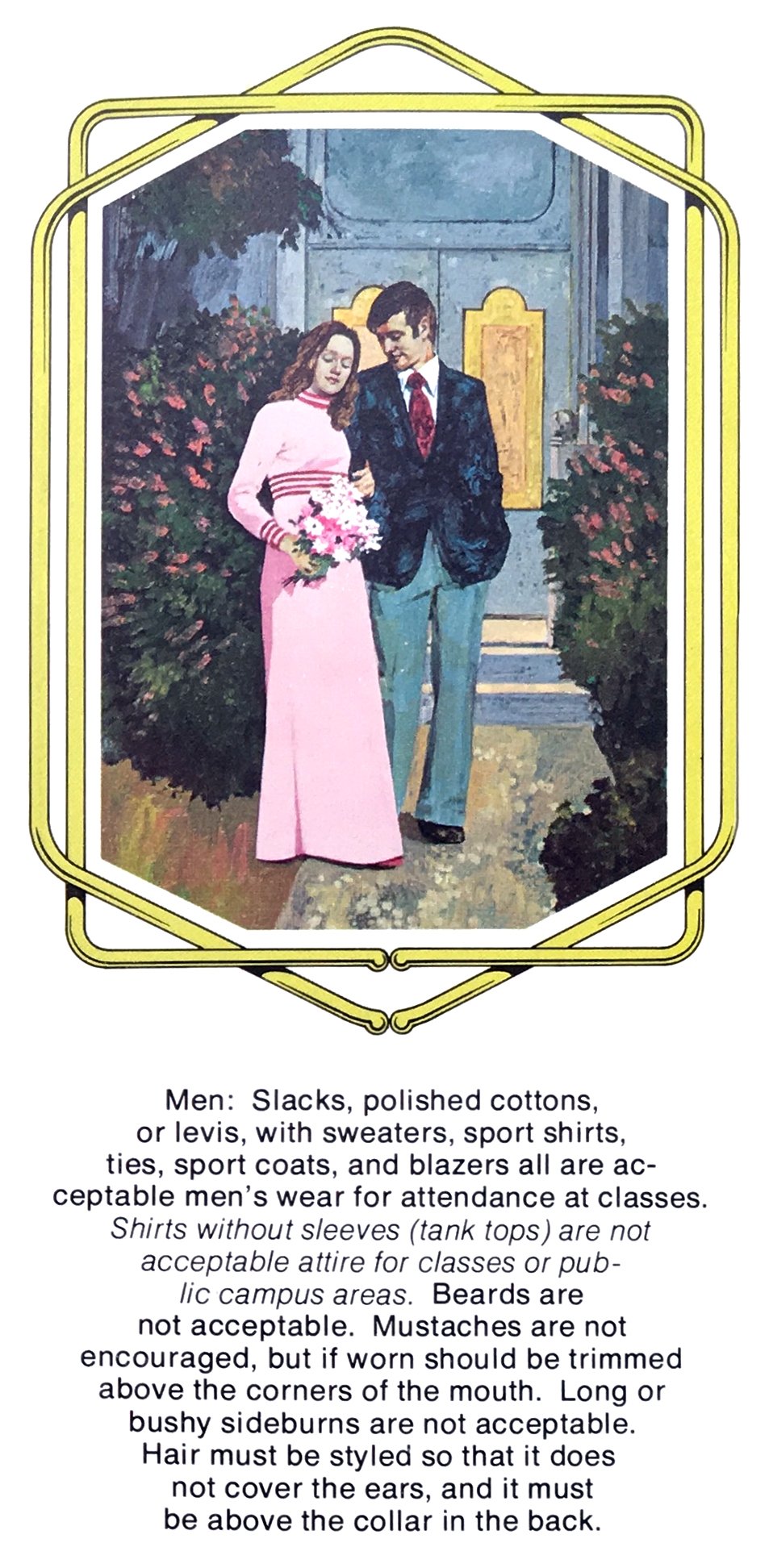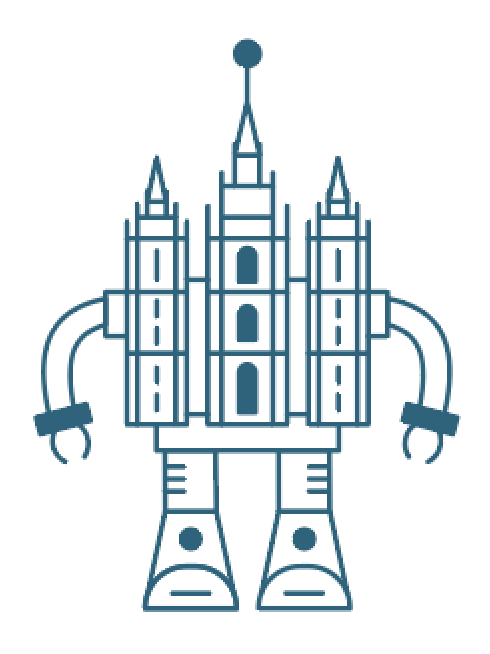BYU's Beard Ban

What is Brigham Young University's policy on students having facial hair?
The university's policy prohibits male students, faculty, and employees from having a beard. It does allow mustaches if they are trimmed and do not extend past the corners of the mouth.[1]
When did this policy begin?
In July 1969, BYU President Ernest L. Wilkinson[BIO] sent a letter to the parents of students outlining new dress and grooming standards, which included a prohibition on beards.[2] In September, J. Elliot Cameron,[BIO] the dean of students, warned students that they could not register for classes if they had a beard.[3]
Before then, did BYU allow beards?
Yes. Before July 1969, beards were relatively commonplace among male students[4] and faculty.[5] In fact, beards were officially deemed acceptable even as late as April of 1969.[6]
When did the move away from beards begin?
Starting in the mid-1960s. Wilkinson frowned upon the "grimy" look of "beatniks" and warned that the university would not tolerate students involved with the counterculture of the decade.[7] By 1968, he began to express a desire for male students of BYU to be clean-shaven.[8]

How did students react to the new policy?
It appears that most students accepted the new standard without any problems.[9]
Why did Wilkinson single out beards in BYU's dress and grooming standards?
During the 1960s, beards were counter-culture and often worn by hippies and recreational drug users.[10] By discouraging beards, Wilkinson and his successor, Dallin H. Oaks,[BIO] hoped to encourage a conservative, corporate grooming standard.[11]
Does this prohibition apply to Church employees generally?
Possibly? Full-time male employees of the Church are expected to uphold Church standards,[12] but internal Church employee guides on a beard policy are not publicly available.
Does the Church teach that beards are evil or sinful?
No.
Are Latter-day Saint men generally allowed to have beards?
Yes. There is no general prohibition against beards.
What about for bishops?
There is no official policy requiring bishops or other local leaders to be clean-shaven. However, it is not unusual for higher authorities (such as the Stake President) to encourage new bishops to remain clean-shaven.[13]
In general, how do BYU students feel about this policy?
There is no reliable surveying data on the general attitude toward beards among the BYU student body. Anecdotally, most students seem fine with the policy, though there are mixed opinions.[14] Some have staged protests against the policy.[15]
Related Question
Does the pressure to be “perfect” in the Latter-day Saint culture cause depression?
Read more in Antidepressants in Utah
Is there any indication that BYU may eventually remove the beard rule?
No, there has been no indication of this policy changing.[16] However, there have been adjustments to the Honor Code before,[17] so it's always possible that things may change.
Does BYU grant exceptions to this rule?
Yes. Students may obtain a "beard card" that exempts them from this policy under certain conditions, such as medical needs or religious reasons (e.g., for Muslim men).[18]
Do other universities have dress and grooming standards?
Yes. It is not common in the United States, but some universities do, such as Hampton University and Delta State University.[19]
Is it legal for universities to do this?
Yes.[20]
- Clay A.
“It’s becoming normal for male members to have beards. The difficulty in the Church is the lack of clarity. Doctrine or what you feel is appropriate, conflict on numerous levels. Caffeinated drinks, hair length, and of course beards. Confusion abounds. Beards are not anti-social.” - Dan
“As a recent BYU Grad, I found this rule was often not enforced. As a full-time student with a beard for over 3 years, I experienced no stigma or inability to complete my schooling. The only time it became relevant was when I was hired by BYU and had to shave or get a beard card.” - Camron A.
“I think that it's a policy that makes no sense. The dress code promotes treating our body as a gift as it should. It's about choosing to dress modestly. You cannot choose to just not have hair grow out of your face. It should not be a reflection of righteousness or worthiness.” - Matt
“I would guess that BYU holds into this to be "peculiar". Kind of like certain interpretations of the Word of Wisdom, make is different than others. Personally though, just drop the policy. Inclusion wins out here. There are better places to spend our energy.” - Visitor
“The fact that BYU implied the 2023 changes were student-led decisions and not top-down now raises questions about the culture at large. Hopefully this redirects the critic and will make for a fairer discussion.”



 about this topic
about this topic